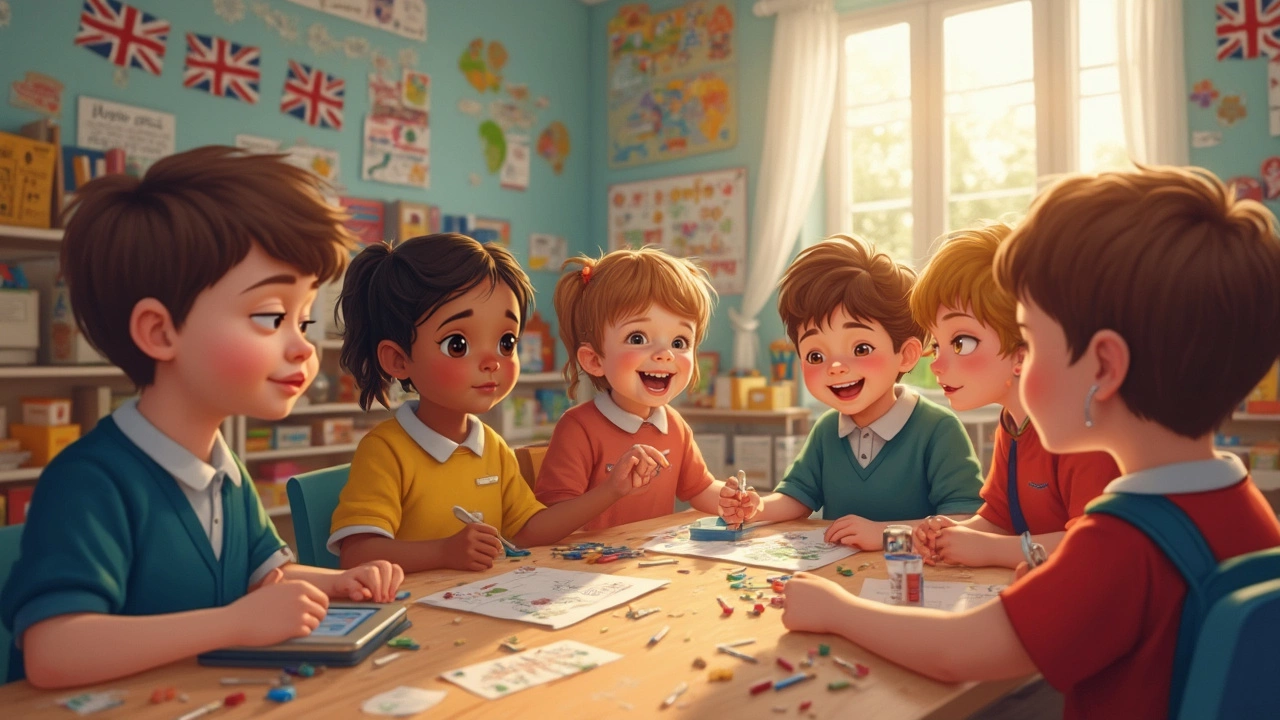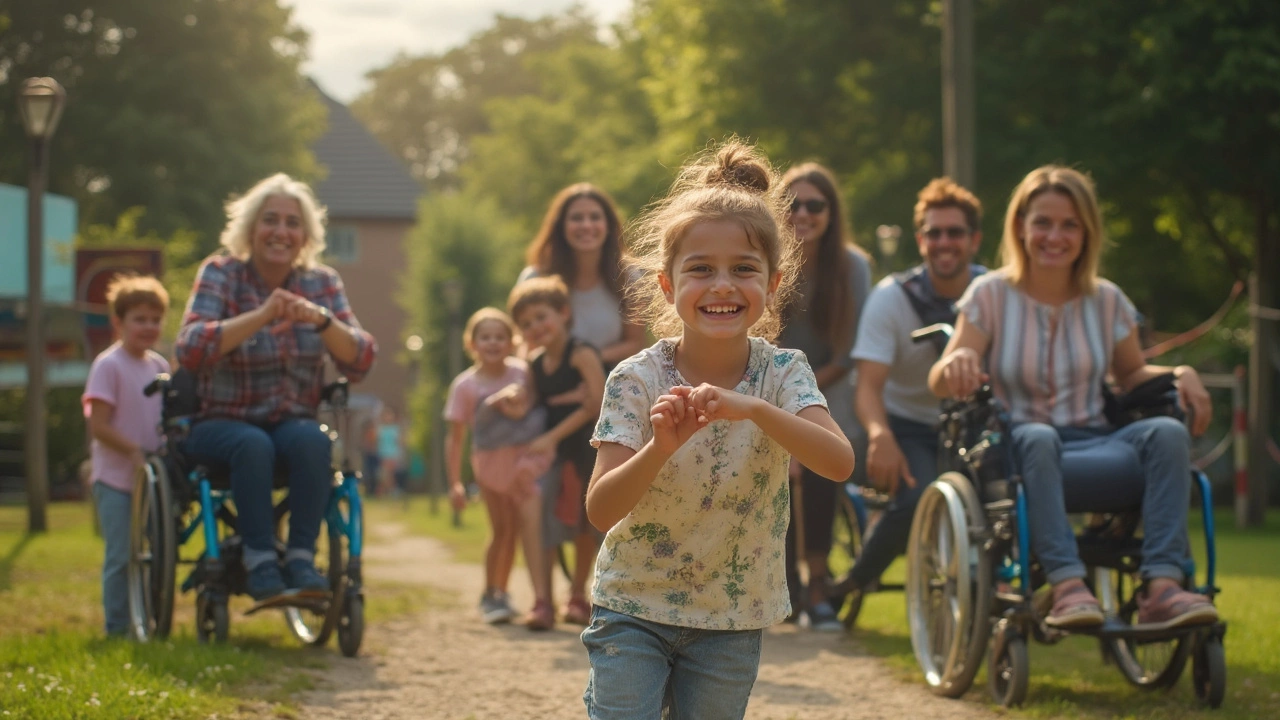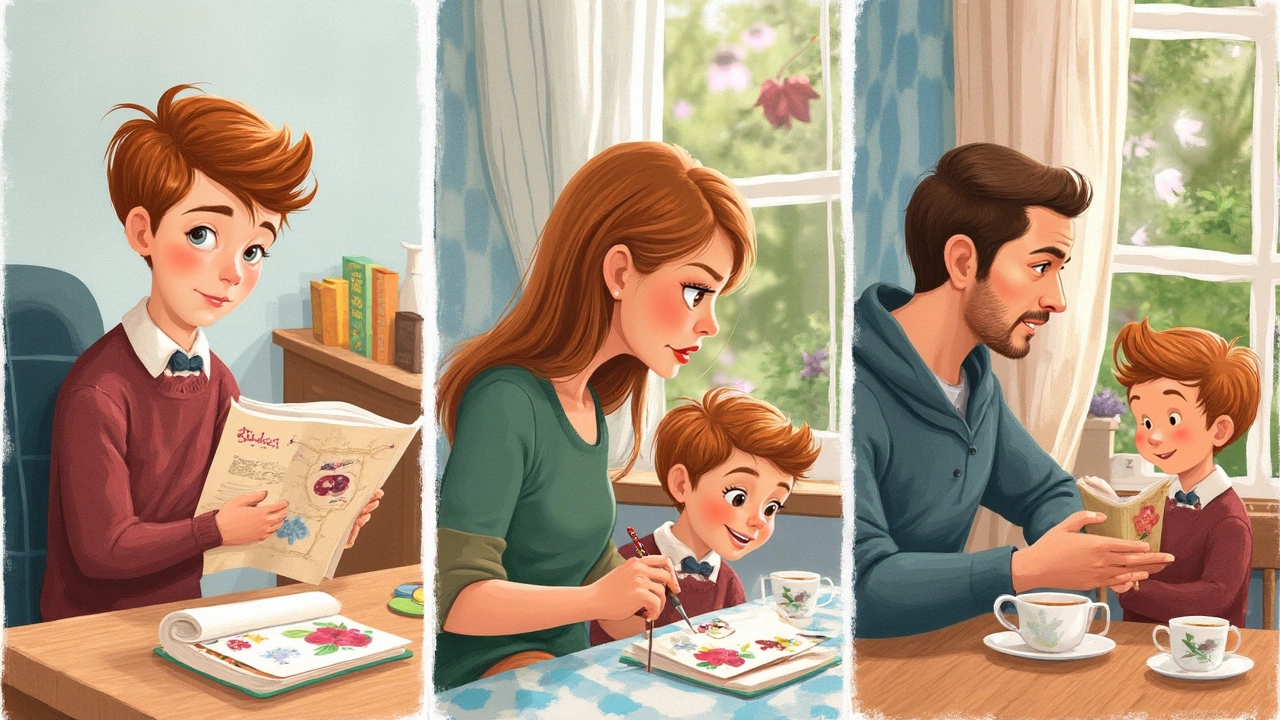-
18
- 0

Can Special Ed Kids Be Successful? Honest Answers and Real Stories
A lot of people still think special ed means you're stuck—like having a label means hitting a wall. That's just not true. Special ed isn't a sentence, it's a different way to learn. Sure, the challenges are real, but so is the possibility of reaching goals that matter—big or small.
Success doesn't look the same for everyone. For some kids, it's landing their first job or moving out on their own. For others, it's having friends or finding a hobby they love. The point? It's not a one-size-fits-all thing and that's actually a good thing. You might be surprised by how many special ed students go on to college, get jobs they enjoy, or build the life they want.
No one does it alone. Teachers who 'get it,' families who push for better options, and friends who cheer from the sidelines—they make a huge difference. When the support is real and schools are on board, kids stop being boxed in by their diagnosis and start figuring out what they're good at. If you want practical ideas for helping a special ed kid aim high, this is where you'll find them—straight-up, no sugarcoating.
- Breaking Down the Stereotypes
- What Success Actually Looks Like
- Barriers and How to Overcome Them
- Champions: Families, Teachers, and Friends
- Real Tips That Actually Help
Breaking Down the Stereotypes
If you hear “special ed,” do you picture a kid who’s never going to finish high school or hold down a job? That’s a stereotype that needs to go. A lot of people get their ideas about special needs education from old TV shows or outdated school labels, not from real life. Here’s the truth: students in special education are all over the map—some need extra help for a reading issue, some for autism, and some for a physical disability. It’s about support, not limits.
For a little reality check, the U.S. Department of Education’s reports from 2023 showed that over 70% of students with disabilities earn regular diplomas instead of leaving school without any credentials. The world is finally catching up to the idea that these kids aren’t less intelligent; their brains just work in unique ways. You’ll even find special ed students in college classrooms, coding bootcamps, and owning businesses. That blows the old stereotype right out of the water.
The label “special ed” doesn’t say what someone can’t do—it’s a tool for finding what works best for them. Think about all the famous people who had special needs: Simone Biles, the gymnastics star who’s open about having ADHD; Temple Grandin, who changed the cattle industry and has autism; even actors and entrepreneurs who struggled in regular classrooms but thrived with the right support, not in spite of it.
Some common myths still hang around, though. Let’s call them out:
- Myth: Special ed kids can’t keep up with regular students.
Fact: With the right support, many thrive in mainstream classes or even excel in certain subjects. - Myth: Receiving special education means you’ll have zero independence.
Fact: Many go on to live on their own, go to college, or have careers they’re passionate about. - Myth: Special education equals low expectations.
Fact: Studies have shown that when teachers and families keep expectations high, special ed students reach further.
If you’re part of a school or a family, break the habit of thinking in limits. Focus on pushing for better tools, more support, and higher goals. Special education is just education that actually fits the student—something all schools should be aiming for anyway. So next time you hear someone make a cringy comment about special ed, you’ve got the facts to set them straight.
What Success Actually Looks Like
Success in special ed isn’t about fitting into one narrow mold. It’s about helping each student reach goals that matter to them, whether that's reading their first chapter book, joining a sports team, or being able to order their own meal at a restaurant. The wins are personal and real, even when they look different from the typical school path.
Let's break it down. Some students end up in trades or community colleges. Others develop social skills that open up new friendships. Plenty aim for living as independently as possible. Research from the National Center for Special Education Research showed that within four years of leaving high school, about 60% of students who received special education services had jobs, and roughly 40% were enrolled in some form of education or training after graduation.
Here’s what success can look like day to day for a special ed student:
- Improving communication—talking, using sign language, or tech devices to share thoughts
- Growing social connections—making friends, joining clubs, or just feeling like part of a group
- Learning job skills, like showing up on time or finishing a task
- Taking part in school events or community activities
- Setting and reaching small, personal goals—like managing money or using public transport
Check out these real stats on where life can take students after special education:
| Outcome | Special Ed Students (%) |
|---|---|
| Competitive job within 4 years | 60 |
| Post-secondary education (any type) | 40 |
| Living independently | 30 |
| Community involvement (sports, clubs, volunteering) | 55 |
Success isn’t about what others expect—it’s about helping each student build skills that make them proud. Parents, teachers, and friends can spot these milestones, celebrate them, and keep moving forward. No confetti needed—just real progress that matters to the kid and everyone rooting for them.

Barriers and How to Overcome Them
Even with all the effort some schools and families put in, there are still big roadblocks. Let's be real—just being in special ed doesn't automatically give a kid what they need to succeed. Sometimes, it's the school budget. Sometimes, it's old attitudes. Sometimes, it's just a lack of know-how when it comes to pushing past the basics.
Here are the most common obstacles and what actually works to knock them down:
- Low Expectations: Some people still think kids in special ed should aim "lower." This isn't just unfair, but it can totally shut down a kid's potential. Flip the script by celebrating all wins, not just the "big" ones, and pushing for personal growth.
- Limited Access: Guys, about 13% of all public school students in the U.S. get special ed services. Not all of them get what they need. School districts might not have tech, therapies, or even staff. If you hit a wall, ask for a meeting: get a team together and ask for what your kid actually needs to learn—not what the school is used to offering.
- Bullying & Social Isolation: Getting left out still happens a lot. The National Center for Education Statistics says that kids in special ed are bullied nearly twice as much as their peers. Building real friendships takes work, but joining after-school clubs or school groups can help a lot, even if it feels awkward at first.
- Confusing Paperwork: IEPs, 504s, medical forms—it gets overwhelming fast. Don't be afraid to ask questions in meetings, and keep a binder where you stash everything. There are free advocates and parent groups everywhere who can break it down in plain English.
- Not Enough Transition Help: High school ends and suddenly it's a new world: jobs, college, real life. The Individuals with Disabilities Education Act (IDEA) actually says schools have to help with transition planning by age 16, but not every district does a great job at this. If your kid is almost a teen, schedule that transition meeting early and ask for practice interviews, job skills classes, and local resources.
Numbers tell it how it is. Check out these key stats to see the picture:
| Barrier | How Many Affected | What Helps |
|---|---|---|
| Bullying | Nearly 22% of special ed students report being bullied (NCES, 2023) | Peer groups, school policies, teacher training |
| Graduation Rates | Only 72% graduate high school vs. 89% of all students (US Dept. of Ed, 2022) | Individualized support, strong IEP teams, transition planning |
| Access to Technology | About 16% report not having needed assistive tech (NCLD, 2023) | IEP updated tech requests, try public programs, tech grants |
The best advice? Don't get used to "This is just how it is." Push for more, ask questions, and get creative. Every barrier knocked down makes a real, measurable difference.
Champions: Families, Teachers, and Friends
Behind nearly every successful special ed kid is a team that knows when to push, when to listen, and how to help them power through the tough days. And it's not just teachers or parents—friends play a bigger part than people think.
Start with the numbers: A 2023 report from the National Center for Special Education says that kids with family involvement are twice as likely to finish high school as those without. That's huge. Think about it. Just showing up to IEP meetings, asking questions, or even emailing a teacher can make a difference. Parents who push for what their kids need—extra time, tech support, speech help—often see the biggest wins.
"When families and teachers work together, students with disabilities achieve more. Success isn’t just academic—it’s about confidence and independence too." — Dr. Lisa Jones, Director of Special Education, Illinois
Good teachers are the ones who spot strengths that sometimes get overlooked. They talk to students, adjust their teaching, and look out for signs of progress (not just test scores). Schools that provide regular training for their special ed staff see much better outcomes in both learning and social development. Here’s a quick look at what matters most:
- Parents staying in the loop: regular contact with teachers, being part of IEP decisions
- Teachers with special ed training: able to adapt lessons and handle different learning styles
- Friends and peers: helping with social stuff, team projects, or just being there at lunch
Here’s what the data says about the impact of these champions:
| Champion | Effect on Special Ed Kids |
|---|---|
| Family Involvement | Dropout rates reduced by 50% (NCSE 2023) |
| Specially Trained Teachers | 45% higher reading and math gains (EdWeek Survey 2022) |
| Positive Peer Relationships | 3x more likely to report high school as a positive experience (CDC Youth Survey 2023) |
Friends are underrated. They’re not just for fun—they help special ed students practice social skills, learn to solve problems, and bounce back from rough days. One middle school in Minnesota started a "lunch buddy" system and saw bullying drop by 30% among special ed students in just one year.
So, if you want these kids to succeed, it takes a full crew. Parents, teachers, and friends matter more than any test score ever could.

Real Tips That Actually Help
Let’s get right into what actually works for special ed kids and families. Forget the vague pep talks—these are grounded in real classrooms, homes, and the everyday grind.
- Special ed students often thrive with routines that make sense. Visual schedules or color-coded planners can help students see what’s coming next, which takes away a lot of stress. Consistency is like gold for kids who need time to adjust.
- Use real-life goals. If a student loves animals, try counting exercises with pictures of dogs or reading stories about veterinarians. Linking lessons to personal interests isn’t just fun; it helps information stick.
- Communication tools make a night-and-day difference. Some kids need access to speech devices or picture boards, while others might benefit from voice-to-text software. One well-known fact: a study in 2022 at the University of Michigan found that students using these supports in class improved both confidence and their actual grades.
- Don’t ignore social skills. Friendships can be tough when you don’t always “get” social rules. Simple role-playing, practicing greetings, or even using social scripts can help a lot. Schools with peer buddy systems usually see kids with learning differences making more friends and feeling less isolated.
- Keep the IEP (Individualized Education Program) goals realistic—but don’t be afraid to raise the bar. When kids crush a target, celebrate out loud, or let them pick a reward. Progress, not perfection, is what keeps everyone motivated.
The last thing: Ask the kid what they care about. Sometimes adults make the plan, but a kid’s own ideas often surprise everyone. Listen. Try their suggestions. It really does work better that way.
Write a comment
Tags Weight
- education
- study tips
- adult education
- exam preparation
- online courses
- adult learning
- lifelong learning
- distance learning
- GCSE revision
- online education
- private tutoring
- special needs education
- scholarships
- remote learning
- scholarship tips
- financial aid
- international students
- effective learning
- e-learning
- education funding

Written by Elara Winslow
View all posts by: Elara Winslow